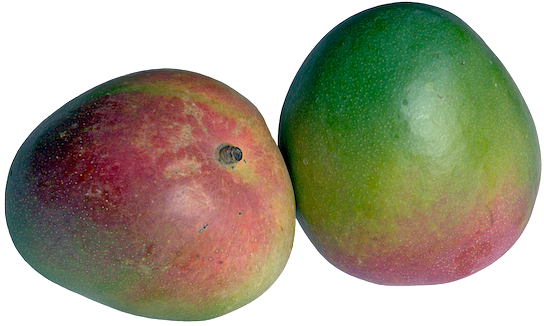The Best Food For Weight Loss
Weight loss is a journey that involves many components, including exercise, lifestyle changes, and perhaps most importantly, diet. Eating the right foods can significantly impact your ability to lose weight effectively and maintain a healthy weight long-term. In this comprehensive guide, we will explore the best foods for weight loss, how they work to support your goals, and tips on how to incorporate them into your daily routine.
Understanding weight loss
Before diving into the specifics of weight-loss-friendly food and diet, it is essential to understand the basic principles of weight loss. Weight loss occurs when you burn more calories than you consume, creating a calorie deficit. This deficit forces your body to use stored fat for energy, leading to weight loss. Therefore, choosing food that are nutrient-dense, low in calories, and supportive of metabolic health can enhance your weight-loss efforts.
Top food for weight loss
1) Leafy greens
Leafy greens like spinach, kale, and Swiss chard are among the best foods for weight loss. They are low in calories but high in essential nutrients like vitamins A, C, and K, as well as fibre.
Benefits
-
-
- Low-calorie density: These greens provide volume without many calories, helping you feel full.
- High in fibre: Fibre aids in digestion and helps maintain a feeling of fullness longer.
-
Tips for Incorporation
-
-
- Add spinach or kale to smoothies
- Use leafy greens as a base for salads
- Include them in soups and stews
-
2) Lean proteins
Protein is crucial for weight loss because it boosts metabolism and helps build muscle. Lean proteins like chicken breast, turkey, and tofu are excellent choices.
Benefits
-
-
- High satiety: Protein keeps you feeling fuller for longer periods
- Muscle preservation: Helps maintain muscle mass during weight loss.
-
Tips for Incorporation
-
-
- Grill or bake chicken breast as a main dish
- Add tofu to stir-fries or salads
- Opt for lean cuts of beef or fish
-
3) Whole grains
Whole grains such as quinoa, brown rice, and oats are rich in fiber and essential nutrients. They are a better choice than refined grains like white rice or white bread.
Benefits
-
-
- Sustained energy: Whole grains provide a steady release of energy
- Improved digestion: High fibre content promotes digestive health and regularity.
-
Tips for Incorporation
-
-
- Replace white rice with brown rice in your meals
- Enjoy oatmeal for breakfast with fresh fruit
- Use quinoa as a base for salads or side dishes.
-
4) Berries
Berries like strawberries, blueberries, and raspberries are not only delicious but also packed with antioxidants and fibre
Benefits
-
-
- Low calorie: Berries are low in calories but high in nutrients
- Rich in antioxidants: They help combat oxidative stress and inflammation.
-
Tips for Incorporation
-
-
- Add berries to yogurt or smoothies
- Enjoy them as a snack or in salads
- Use frozen berries in baked goods or desserts
-
5) Nuts and seeds
Nuts and seeds, such as almonds, chia seeds, and flaxseeds, are great for weight loss when consumed in moderation. They provide healthy fats and essential nutrients.
Benefits
-
-
- Healthy fats: Nuts and seeds contain monounsaturated and polyunsaturated fats that support heart health
- High satiety: They help keep you full and satisfied.
-
Tips for Incorporation
-
-
- Sprinkle chia seeds or flaxseeds on your cereal or yogurt
- Snack on a small handful of almonds
- Use nuts in salads or as a topping for various dishes
-
6) Legumes
Legumes like beans, lentils, and chickpeas are high in protein and fiber, making them excellent for weight loss.
Benefits
-
-
- High in protein and fibre: These nutrients support digestion and satiety
- Versatile: Can be used in various recipes from soups to salads.
-
Tips for Incorporation
-
-
- Add beans to soups and stews
- Include lentils in salads or as a meat substitute in dishes
- Use chickpeas in hummus or roasted as a snack
-
7) Avocado
Avocado is a nutrient-dense fruit that provides healthy fats and fiber. It’s an excellent food for maintaining a balanced diet while losing weight.
Benefits
-
-
- Healthy fats: Contains monounsaturated fats that are good for heart health
- Fibre-rich: Helps keep you full and aids digestion.
-
Tips for Incorporation
-
-
- Add avocado to salads or sandwiches
- Enjoy it on toast or in smoothies
- Use it as a creamy base for dressings
-
8) Greek yogurt
Greek yogurt is rich in protein and probiotics, making it a great choice for weight loss and digestive health.
Benefits
-
-
- High in protein: Supports muscle maintenance and keeps you full
- Probiotics: Promote a healthy gut microbiome.
-
Tips for Incorporation
-
-
- Enjoy Greek yogurt with fruit or nuts as a snack
- Use it as a base for smoothies or desserts
- Incorporate it into savoury dishes as a healthier substitute for sour cream
-
9) Cruciferous vegetables
Cruciferous vegetables like broccoli, cauliflower, and Brussels sprouts are low in calories and high in fibre.
Benefits
-
-
- Nutrient-dense: Packed with vitamins and minerals
- Filling: High fibre content helps keep you satisfied.
-
Tips for Incorporation
-
-
- Roast or steam cruciferous vegetables as a side dish
- Add them to stir-fries or casseroles
- Include them in soups for added nutrition
-
10) Cucumbers
Cucumbers are low in calories and have a high water content, making them excellent for hydration and weight loss.
Benefits
-
-
- Hydrating: High water content helps keep you hydrated
- Low calorie: Very low in calories, which supports weight loss.
-
Tips for Incorporation
-
-
- Use cucumbers in salads and sandwiches
- Snack on cucumber slices or add them to smoothies
- Make cucumber-infused water for a refreshing drink
-
Tips for Creating a Weight-Loss-Friendly Meal Plan
1) Balance Your Plate**
Ensure each meal includes a balance of protein, fiber, and healthy fats. This combination helps maintain energy levels and keeps you feeling full longer.
Example Plate
-
-
- Protein: Grilled chicken breast
- Fibre: Steamed broccoli and quinoa
- Healthy fat: A slice of avocado.
-
2) Practice portion control
Even healthy foods can contribute to weight gain if consumed in large quantities. Pay attention to portion sizes to avoid overeating.
Tips
-
-
- Use smaller plates to help control portions
- Avoid eating straight from the package
- Listen to your body’s hunger and fullness cues.
-
3) Stay hydrated
Drinking plenty of water is essential for overall health and can aid in weight loss by keeping you hydrated and supporting metabolic processes.
Tips
-
-
- Aim for at least 8 glasses of water per day
- Drink water before meals to help control appetite
- Opt for herbal teas or infused water for variety.
-
4) Avoid skipping meals
Skipping meals can lead to overeating later in the day. Instead, eat regular, balanced meals to maintain stable blood sugar levels and energy.
Tips
-
-
- Plan and prepare meals ahead of time
- Include healthy snacks if you’re hungry between meals
- Stick to a consistent eating schedule
-
5) Read labels
When purchasing packaged foods, read the labels to avoid hidden sugars, unhealthy fats, and high-calorie ingredients
Tips
-
-
- Look for products with minimal added sugars and unhealthy fats
- Choose items with high fibre and protein content
- Avoid products with long lists of unrecognisable ingredients
-
Lose weight with smart choices
Incorporating the right foods into your diet is a crucial aspect of successful weight loss. Foods like leafy greens, lean proteins, whole grains, and berries can support your weight-loss goals by providing essential nutrients, keeping you full, and promoting health. Coupled with a balanced meal plan, portion control, and staying hydrated, these foods can help you achieve and maintain your desired weight.
Remember that weight loss is a journey that requires patience and consistency. Tailor your diet to your personal preferences and needs, and consult with a healthcare provider or registered dietitian for personalized advice. By making smart food choices and adopting a healthy lifestyle, you can not only lose weight but also improve your well-being.



